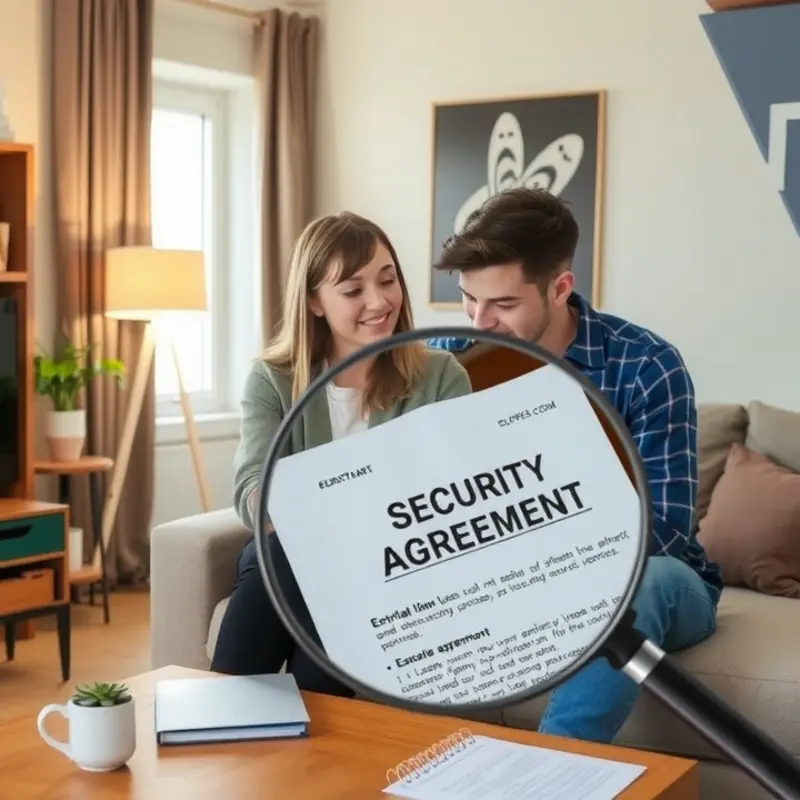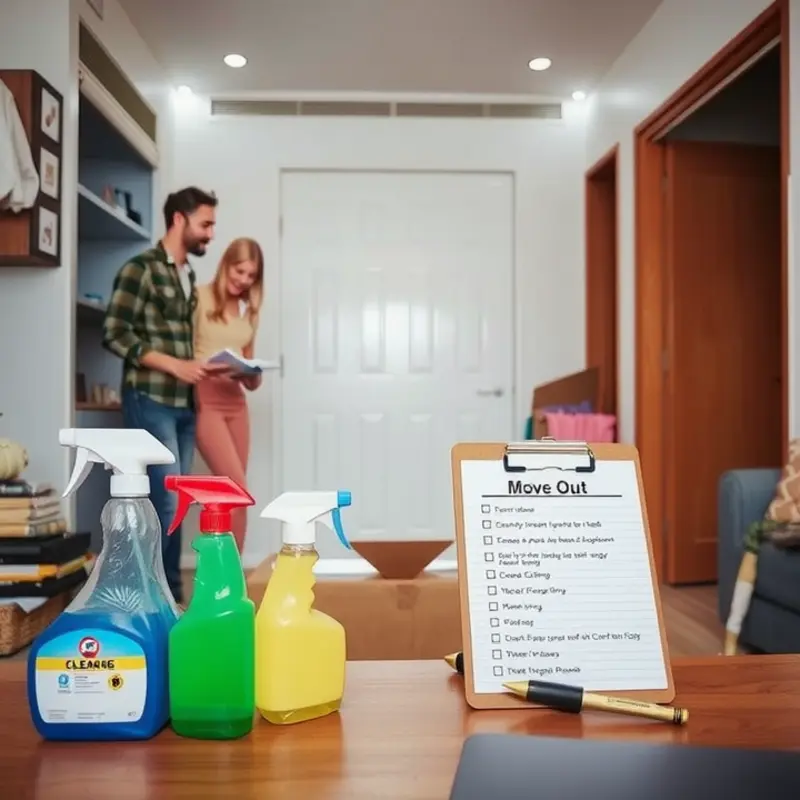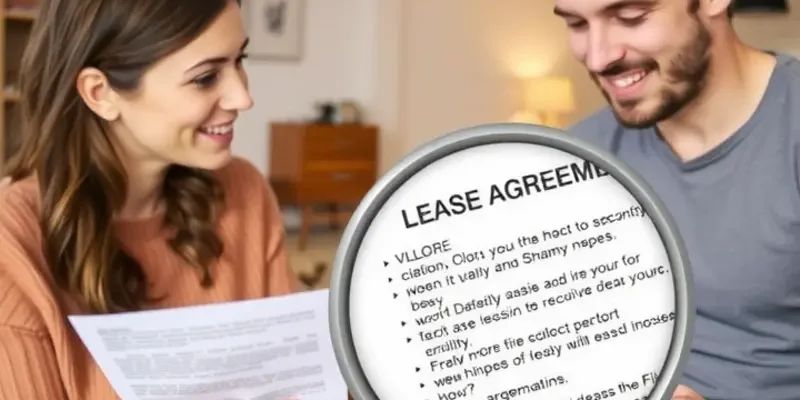Navigating the world of renting can be daunting, especially for young professionals, first-time renters, students, couples, and families. One crucial aspect that often gets overlooked is the security deposit. This substantial sum, typically equivalent to one month’s rent, is intended to cover any damages or unpaid rent, but you shouldn’t automatically assume you’ll lose it all when you move out. Familiarizing yourself with the rules and practices surrounding security deposits can save you money and headaches. Understanding what constitutes damage, the required notice periods for moving out, and meticulous practices that ensure your home is in top condition can significantly influence the likelihood of a full refund. In the chapters that follow, we’ll explore best practices for securing your deposit back while providing a reassuring guide through lease agreements and the move-out process. These insights will empower you to maximize your security deposit refund and pave the way for a financially savvy renting experience.
Understanding Security Deposits: Your Rights and Responsibilities

Navigating the world of renting can be daunting, but understanding your security deposit rights and responsibilities is vital for a smooth tenancy. First, you need to know what your security deposit covers. It’s essentially a safeguard for the landlord against any damage or unpaid rent.
As a tenant, you have certain rights regarding your security deposit. Most importantly, landlords are required to return the deposit within a specific time frame after your lease ends, typically ranging from two weeks to two months, depending on local laws. Familiarizing yourself with these timelines can prevent unnecessary delays in receiving your refund.
Your lease agreement will outline the terms of your security deposit. It’s essential to read this document carefully. Pay close attention to any clauses that discuss the conditions for deductions and the circumstances under which you might forfeit your deposit.
Potential deductions from your security deposit often include repairs for any damage beyond normal wear and tear. For example, a few nail holes or minor carpet wear might not justify deductions. However, larger issues, such as broken windows or deep carpet stains, likely will. To protect yourself, document the apartment’s condition when moving in and out. Take detailed photographs or videos and note any pre-existing damages.
Understanding maintenance responsibilities can also save you money. Many leases stipulate that tenants must replace light bulbs or smoke detector batteries. If you fail to handle these minor tasks, your landlord might use the deposit for such replacements, costing you more than if you did it yourself.
To maximize your security deposit refund, it’s also crucial to periodically perform maintenance checks on the property. A small leak, if left unattended, could lead to significant deductions. Checking for issues regularly can help you address them in a timely fashion, thus preserving the full value of your deposit.
Engaging in open communication with your landlord can be beneficial. If there are issues with the property, promptly notify your landlord in writing. This proactiveness shows your commitment to maintaining the property and might encourage your landlord to prioritize repairs without using your deposit.
For an in-depth look at landlord obligations, which can also impact your rights and responsibilities, review our guide on landlord obligations when renting.
In conclusion, understanding the terms of your security deposit can be the key to ensuring you receive a full refund. Armed with this knowledge, you can approach renting with confidence, knowing you’re well-prepared to protect your financial interests.
Preparation for Move-Out: Ensuring a Smooth Return Process

Moving out of a rental can seem daunting, but following a structured plan will help ensure you receive your security deposit back in full. Start by setting a detailed timeline to manage tasks efficiently. Giving yourself enough time to address each step will reduce stress and prevent last-minute scrambling.
One of the essential tasks is a thorough cleaning of the apartment. Scrutinize every corner, including areas that are often forgotten, like oven interiors, behind refrigerators, and under sinks. Pay particular attention to high-use areas that accumulate dirt and grime, such as bathrooms and kitchens. Consider enlisting professional services if needed, but remember to keep receipts as proof of cleaning efforts.
Next, ensure you document the condition of the apartment. Take clear, detailed photos or videos of each room, highlighting any pre-existing damage to avoid future disputes. Proper documentation will serve as valuable evidence if there are disagreements with your landlord about the state of the apartment. Accompany these visuals with a written record, noting the condition of walls, floors, appliances, and fixtures.
Communication with your landlord is another key component. Inform them of your intended move-out date well in advance. This not only helps maintain a good tenant-landlord relationship but also allows both parties to prepare for a final walkthrough. During this walkthrough, address any repairs or cleaning needs the landlord identifies, and ask for written confirmation of their findings.
Address minor repairs yourself to avoid additional fees from your landlord. Touch up paint scratches, fill in nail holes, and replace burned-out light bulbs. Remember that taking the initiative to handle these minor issues can prevent deductions from your deposit for unnecessary maintenance costs.
Don’t forget to go through safety checks, such as verifying smoke detectors are functional or if there are any radon concerns. If you’re uncertain how to handle certain tasks, consider seeking guidance, such as following winter apartment maintenance tips for insights.
Finally, ensure all agreed-upon lease obligations have been fulfilled. This includes paying any outstanding rent or utility bills and ensuring keys are returned. Completing these final obligations demonstrates your responsibility as a tenant, further improving your chances of securing your refund without deductions.
By systematically addressing these aspects, you prepare not only to leave your current apartment in good standing but also to embark on your next rental with confidence and a fresh start.
Final words
Successfully securing your security deposit refund is not just about getting your money back; it’s a reflection of your responsibility as a tenant. By committing to a thorough understanding of your rights and obligations, as well as preparing properly for your move-out, you’ll put yourself in a much stronger position come refund time. Your proactive measures can turn what could be a frustrating experience into a smooth, reassuring process. Remember that a little preparation goes a long way towards peace of mind and financial clarity, especially in your journey as a renter.









